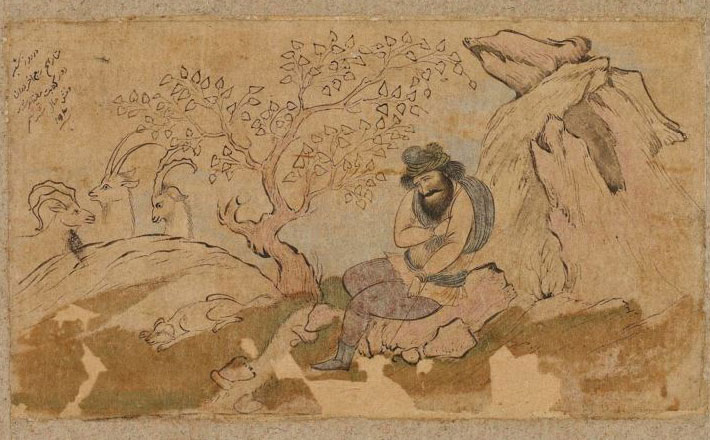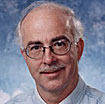Commentary on Psalm 23
Everybody knows Psalm 23. In an era of increasing biblical illiteracy, this is an encouraging sign.
But what may concern us about Psalm 23 is its reputation — that is, it is known for the most part as a “funeral psalm.” To be sure, it is not a bad thing that Psalm 23 speaks palpably and powerfully to persons in situations of death and loss; and this ability of Psalm 23 coheres quite well with its appearance in the lectionary during the season of Easter. After all, in my tradition and many others, a funeral service is more properly known as a Service of Witness to the Resurrection, which is what we especially remember and affirm during the season of Easter.
But what about those days when no one that we know well has died, and there is no funeral to preside at or attend? How do we hear, appropriate, and proclaim Psalm 23 on a warm, sunny April Sunday morning when life seems quite ordinary, maybe even quite good? To begin to address these questions, it is helpful to know that Psalm 23 is not known primarily as a “funeral psalm” in other parts of the world.
Consider Philip Jenkins’s suggestion, growing out of his experience in the Global South, that we North Americans read Psalm 23 as “a political tract”:
Read Psalm 23 as a political tract, a rejection of
unjust secular authority. For Africans and Asians,
the psalm offers a stark rebuttal to claims by
unjust states that they care lovingly for their
subjects — while they exalt themselves to the
heavens. Christians reply simply, “The Lord is my
shepherd — you aren’t!” Adding to the power of
the psalm, the evils that it condemns are at once
political and spiritual, forces of tyranny and
the devil. Besides its political role, Psalm 23
is much used in services of healing, exorcism
and deliverance.1
To virtually no Christian in the United States does it occur to interpret Psalm 23 “as a political tract;” and probably never do North American Christians read Psalm 23 expecting to be instructed about “the evils that it condemns.”
How might we preachers change this situation? To begin with, perhaps we can help people consider how we live daily in a context that Douglas John Hall describes as “the kingdom of death”2 — that is, we are constantly surrounded by forces that diminish the abundant life that God intends. To be sure, most North Americans will not view themselves as victims “of unjust secular authority;” and so most North Americans will need help identifying the “forces of tyranny” at work among us. Consider, for instance, Thomas Merton’s assessment of our situation:
Even though there’s a certain freedom in our
society, it’s largely illusory. Again, it’s
the freedom to choose your product, but not
the freedom to do without it. You have to be
a consumer and your identity is to a large
extent determined by your choices, which are
very much determined by advertising. Identity
is created by ads.3
In a context in which advertising is pervasive — something like an extraordinarily well-financed educational curriculum — and in which we virtually “have to be a consumer,” it is not surprising that our society is characterized by what Alan Greenspan, former chair of the Federal Reserve, once called “infectious greed.”4
Indeed, it may be that greed is one of the primary “forces of tyranny” Psalm 23 condemns by way of its simple affirmation that “The LORD is my shepherd, I have everything I need” (verse 1; my translation). Notice that what the shepherd provides for the sheep are the basic necessities of life — food (“green pastures”), drink (“still waters”), and protection (“right paths”). In short, the shepherd “keeps me alive”(verse 3a, my translation). In the second section of the psalm (verses 5-6), the gracious host also provides the basic necessities of life — food (“a table”), drink (“my cup overflows”), and protection (“you anoint my head with oil”) — leading to a situation of safety and security, or in short, life as God intends.
The issue is life; and in accordance with God’s character (“see for his name’s sake” in verse 3), God wills and actively works for life (see verse 6a, which is better translated “Surely goodness and faithful love will pursue me all the days of my life”). In contrast to us busy and industrious North Americans, who are inclined to view life as an achievement — we make a living, we say — Psalm 23 affirms that life is essentially a gift.
As such, the appropriate response is not greed, but rather infectious gratitude! Such gratitude may even mean that we are free to do without, or at least free to be content with enough. It may mean that we do not have to be a consumer. Instead of being compelled to consume, we are set free to share, quite literally, for God’s sake — to share our food, our drink, our sources of security, and to share even with the enemies who are with us at the table God prepares (verse 5).
Quite appropriately, M. Douglas Meeks discerns a distinct continuity between the message of Psalm 23 and the meal that we Christians call the Eucharist, which means “thanksgiving” or “gratitude;” and there are implications for our daily behavior:
The celebration of the Lord’s Supper is under
orders from God the Economist and is a concrete
instance of God’s providential oikonimia
[= “the law of the household,” the root meaning
of the English word “economy”] with
implications for all eating and drinking
everywhere. For this reason, the disciples of
Jesus should pray boldly for daily bread (Luke
11:13). They should keep the command to eat
and drink, recognizing that it includes the
command that they should share daily bread with
all God’s people. . . Psalm 23 depicts the work
of God’s economy overcoming scarcity in God’s
household [= the world].5
As it turns out, then, Psalm 23 is not only “a political tract,” but also an economic manifesto! Appropriately for the Easter season, it calls us to life, lived as God intends — in humble gratitude to God and in solidarity with God’s world-encompassing household.
1 Philip Jenkins, “Liberating Word: The Power of the Bible in the Global South,” Christian Century, July 11, 2006, 26.
2 Douglas John Hall, The Stewardship of Life in the Kingdom of Death (Grand Rapids: Eerdmans, 1985), especially 33-51.
3 Thomas Merton, The Springs of Contemplation: A Retreat at the Abbey of Gethsemani (Notre Dame, IN: Ave Maria Press, 1997), 110.
4 Greenspan is quoted in Phyllis Tickle, Greed: The Seven Deadly Sins (New York: Oxford University Press, 2004), 18.
5 M. Douglas Meeks, God the Economist: The Doctrine of God and Political Economy (Minneapolis: Fortress, 1989), 180.


April 25, 2010